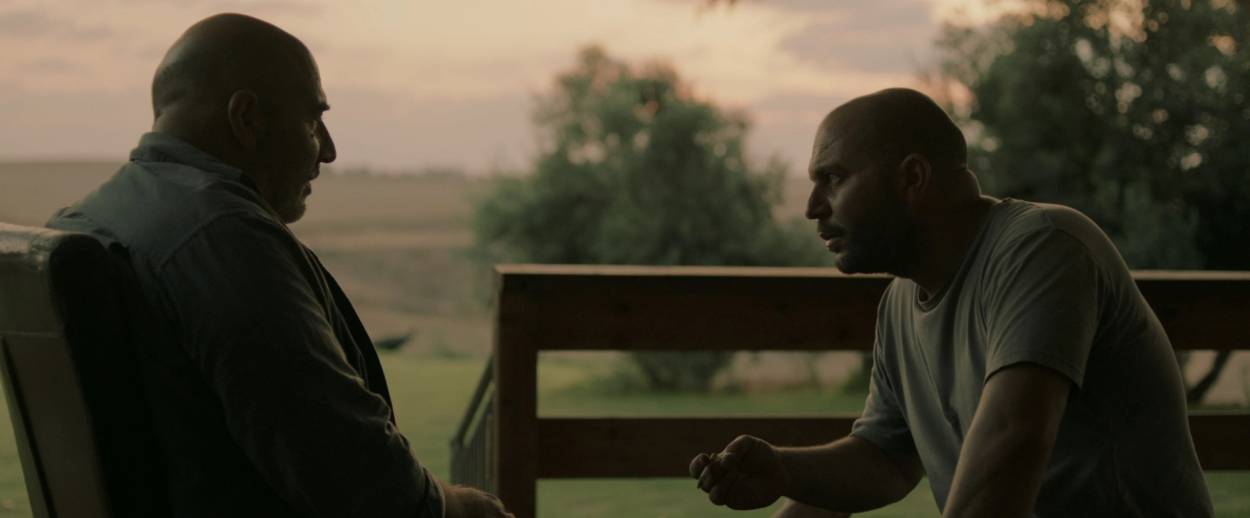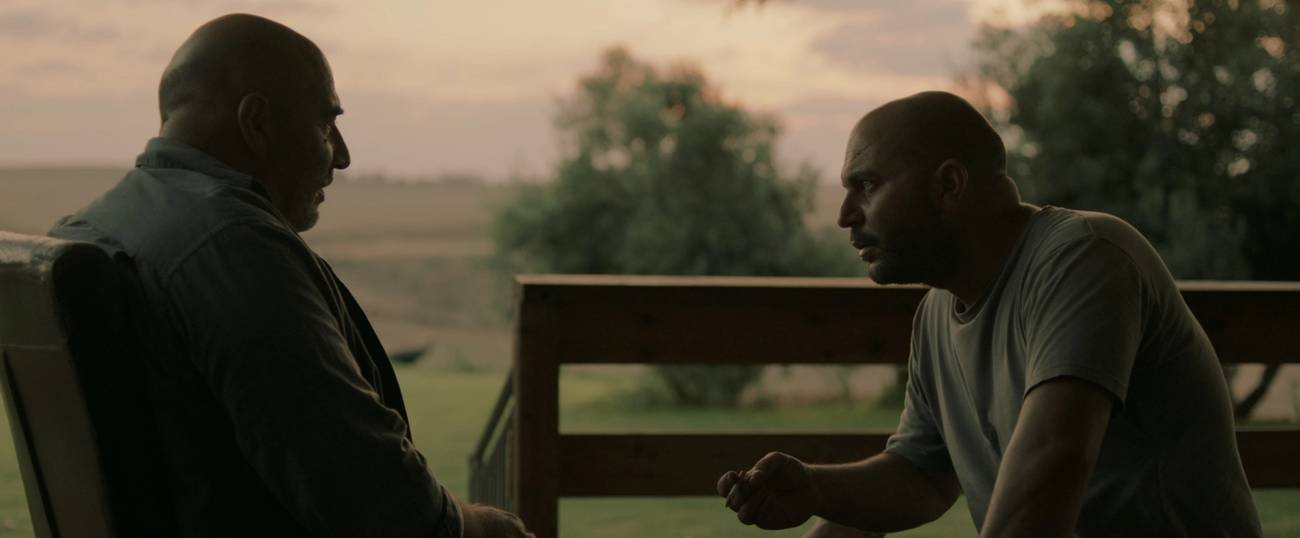What Critics Left and Right Get Wrong About ‘Fauda’
The show’s depiction of visceral hatred and common humanity makes it truly great




If a Jew sympathetic to Israel and a pro-Palestinian critic writing for the Guardian both dislike the Netflix hit Fauda, now in its second season, it can’t be all bad. In fact, it is a series that like Homeland and Breaking Bad has cracked the mold and pushed the genre into uncharted TV territory.
Which binge watcher could have predicted the bizarre success of a shoot-‘em-up where they speak only Hebrew and Arabic, with tiny subtitles in English? Made with a modest budget by U.S. standards, Fauda (Arabic for “chaos”) does without Hollywood’s bag of shticks. There are no romantic vistas like Breaking Bad’s New Mexico skies–morning, day and starry night. Just the dusty roads of the West Bank and the treacherous warrens of Nablus. Why plunge into the nightmare of Middle East politics where, no matter how gingerly you tread, you are bound to offend one or the other side?
Writing in Tablet, Simon Israel Feuerman, pooh-poohs Fauda for showing the wrong kind of Jews. These are neither the “gentle, learned scholars“ his mother taught him to revere, nor the ”new Zionist heroes negating the old nebbishy Jewish stereotypes.“ Fauda’s main character, Doron, a member of an IDF hit team operating in the West Bank, is merely a “curious new form of the Jew as shlemiel.” He is a confused, angry dude who should be in therapy instead of roaming the Kasbah of Nablus with a Glock in his waistband.
Doron’s wife cheats on him with a colleague, and he takes up with Shirin, a proud Palestinian princess right out of A Thousand and One Nights, but with an M.D. degree and a perfect command of French. Blindly obsessive in his quest to take down the Hamas or ISIS bad guy du jour, Doron keeps violating his commander’s orders, botching the team’s missions and leaving a trail of mayhem behind. Feuerman calls him a “shmendrik,” a bungler and boob.
Yet Doron, like so many flawed heroes, is anything but a shmuck, to add yet another sh-word. Hounded by demons, he just has to kill the abominable Hamas top operative Abu Ahmad, aka “The Panther,” in the first season. In the second, he goes after the self-appointed ISIS leader, al-Makdasi. An aside: The murderous Makdasi (Firas Nassar) makes a better heart-throb with his moist eyes and seductive smile than Omar Sharif in his glory days..
To do what he has to do–to avenge his father, who has been decapitated by Makdasi on camera, Doron lies, betrays, and tortures. Meanwhile, his buddies, only slightly less adrenaline-driven, regularly go mano-a-mano with one another, fired up by jealousy or rivalry. The only balanced person in the anti-terror group is a woman, Nurit. A taciturn pro, she kills out of necessity, not fear or fury.
Shlemiels and shmendriks are victims, predestined losers. They don’t set elaborate traps, nor do they threaten their captives with immolation to make them talk. This is the West Bank, not a shtetl in the Pale where Jews had no choice but to cower before the Cossacks. These “shlemiels” are in fact third-generation Zionists who fight like their forefathers did–except with drones and data bases, not with home-made Sten machine guns.
Writing in the Guardian, Rachel Shabi, an Israel-born critic of Israel, gets it wrong, too–or “right” if you believe in the moral obtuseness of the Israelis and the justice of the Palestinian cause. Yes, the series makes an effort at evenhandedness, Shabi concedes. But it is still “overwhelmingly narrated from an Israeli viewpoint.” The “Israeli occupation is nowhere to be seen–there is no wall, no settlers, no house demolitions [and] none of the everyday brutalities of life under occupation.”
This is a generic critique that affirms the author’s political bona fides. Yet to castigate Fauda for ignoring the occupation, which is actually the backdrop for every episode, is like faulting Richard III for failing to condemn the squalor and misery of 15th century England. These were indeed nasty times. But Shakespeare wanted to make a different point. Richard is about treachery, murder and unbounded ambition–about universal human traits.
For Fauda, the occupation is a given, hence not the core of the story. What distinguishes the series from a run of the mill tale of Good & Evil, is its ambivalence and its ever-changing perspective as the narrative switches back and forth between Israelis and Palestinians. That is its claim to originality and excellence.
How shall we count the ways?
To begin, the protagonists look, walk, dress and speak the same, with Palestinians and Israeli switching smoothly from Hebrew to Arabic, and vice versa. Their common bond are those classic Arabic swear words centering on the sexual depravity of one’s mother. It doesn’t require a subtle mind to get the subtext: Look how alike we are.
Nor does Fauda squelch the voices of the Palestinian. They keep articulating their grievances and their claims to justice. They love their children, and they cry over their fallen. No black and white hats here. The Jews defend their homeland; the Arab kill because they want one. Both sides believe they are in the right, though the Hamas types also invoke Allah. Both feast and fornicate. They have families and rebellious sons. In-group power struggles keep overwhelming the existential national conflict. They go after each other as they plot their next attack on the enemy.
Those uber-clever Israelis regularly screw up–out of ignorance or arrogance. They form friendships with their next-door Muslim neighbors. Captain Gabi Ayub, who directs the Israeli team, develops a respectful, indeed affectionate relationship with Abu Maher, the head of Palestinian Preventive Security, one of the Palestinian Authority’s many domestic spy agencies. Ayub and Abu Maher share intelligence over cups of high-octane Arab coffee, trying to figure out how to best their common foe, be it Hamas or ISIS. To drive ISIS from the West Bank, even Hamas cooperates with the Israelis.
There is no insoluble enmity, the second season whispers–though interspersed with unimaginable cruelty. There is visceral hatred, but also a common humanity, which is a far cry from Rachel Shabi’s “Blame Israel” stock-in-trade. These operatives pontificate about blood-for-blood, honor and vengeance, but they are all caught in a conflict that deforms their souls. Israeli hasbara–PR–Fauda ist not.
“I w0n’t watch Fauda,” avers Feuerman in his closing sentence. You will watch it, once you turn on the first episode and binge your way through the second season. With Kevin Spacey having been fired from House of Cards, there is nothing more gripping on the screen than Fauda. Alas, it will take a few months before the third season is released. The best way to suffer through the wait is to re-watch Homeland, which is based on the Israeli series Prisoners of War.
Josef Joffe, a fellow of Stanford’s Hoover Institution and former editor of Die Zeit, teaches international politics and security at the Johns Hopkins School of Advanced International Studies in Washington.